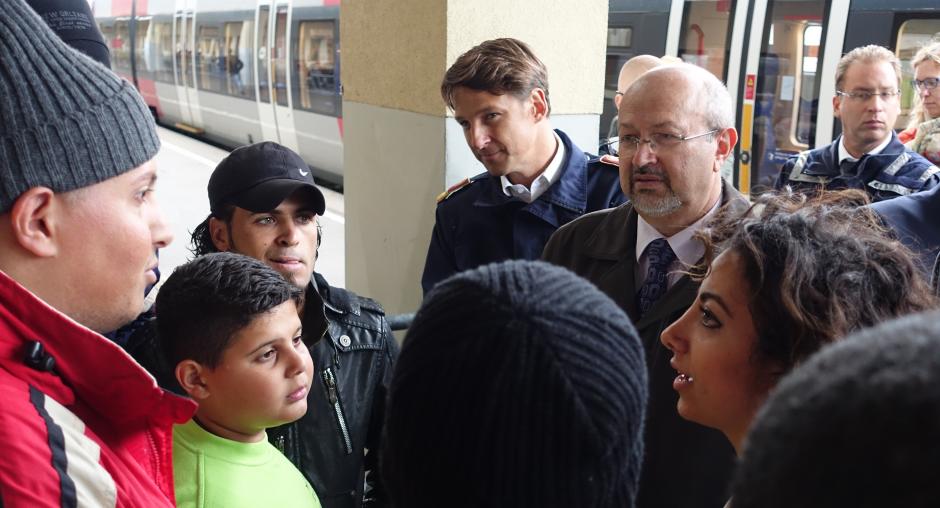OSCE Secretary General visits Vienna’s West Station to meet refugees and representatives of Austria’s Interior Ministry, Police and humanitarian organizations

VIENNA, 24 September 2015 – OSCE Secretary General Lamberto Zannier today met refugees and representatives of local aid organizations at the Vienna West railway station (Westbahnhof), where he was briefed by Austria’s Interior Ministry and the Vienna police about their operations.
The visit, organized in co-operation with Austria, was intended to help the OSCE acquire first-hand information on how the current situation is affecting OSCE participating States.
Zannier spoke to refugees waiting to board a train to the Western provinces of Austria. They told him why they had left their homes in Iraq, Syria and Afghanistan, describing their long and difficult journeys, as well as their hopes and plans for the future.
Vienna Province Police Vice-President General Karl Mahrer explained to the OSCE Secretary General how the Austrian police are working round-the-clock to ensure the safety of refugees. A representative of the Caritas humanitarian organization told Zannier about the support being provided to refugees, including basic provisions and translation assistance.
Zannier praised the generosity and solidarity shown by citizens of Austria and beyond: “This is above all a humanitarian crisis and we have to rise to the challenge, showing that we can be true to the values and principles that have made Europe a beacon for so many,” he said.
The Secretary General said that the OSCE, as an organization encompassing all of Europe and with strong ties to both the Mediterranean and Asian regions, can provide an important platform for co-operation.
“Much of the OSCE’s work is dedicated to addressing sources of insecurity – in this case, the root causes of displacement and migration – and to promoting tolerance and non-discrimination in host societies. We can offer long-standing experience of addressing conflict-driven displacement in Europe to help our participating States in their response to the current crisis but also in developing a strategy to address root causes and longer term challenges.”
